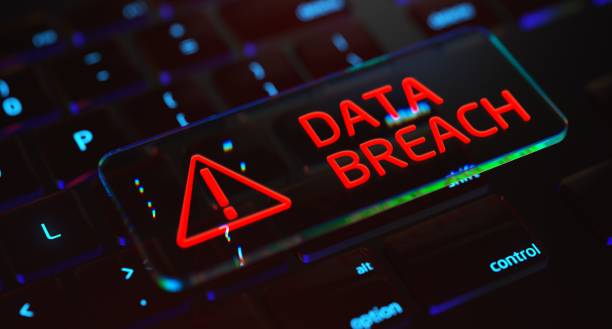Data Breach Crisis: A Type of Organizational Crisis
A data breach crisis is a specific type of organizational crisis that occurs when sensitive information is compromised and exposed to unauthorized individuals. This can lead to significant reputational damage, financial loss, and legal consequences for the affected organization.
Key Characteristics of a Data Breach Crisis:
- Sudden and Unexpected: Data breaches often occur without warning, making it crucial to have a rapid response plan in place.
- Rapid Escalation: News of a data breach can spread quickly, both internally and externally, potentially leading to widespread panic and negative publicity.
- Complex and Multifaceted: Data breaches involve technical, legal, and public relations aspects, requiring a coordinated response from various departments.
- Long-Term Impact: The consequences of a data breach can extend beyond the immediate incident, affecting an organization’s reputation and customer trust for years to come.

A data breach is more than just a technical issue; it’s a major organizational crisis that can impact employees, customers, and the company’s reputation. While IT teams are often the first responders, HR plays a critical role in managing the aftermath of a data breach. From employee communication to morale and legal compliance, HR’s involvement ensures that the human side of the crisis is handled effectively.
1. Communicating Transparently with Employees
Effective communication is key during a data breach. HR needs to ensure that employees are well-informed and aligned with the organization’s response strategy.
- Immediate Notification: Inform employees about the breach promptly, detailing what happened, who is affected, and what the company is doing to resolve it.
- Clear Guidelines: Share specific instructions on what employees should do to secure their accounts and data.
- Two-Way Communication: Provide a channel for employees to ask questions or report concerns, such as a dedicated hotline or email address.
Example: After a phishing attack, an HR team implemented daily updates and FAQ sessions to keep employees informed about ongoing resolutions.
2. Supporting Employees Impacted by the Breach
If employee data is compromised, HR must act swiftly to provide support and mitigate potential harm.
- Offer Credit Monitoring Services: Provide free credit monitoring or identity theft protection to affected employees.
- Address Emotional Stress: Acknowledge the anxiety a data breach can cause and offer mental health support through Employee Assistance Programs (EAPs).
- Provide Resources: Share actionable steps employees can take to protect themselves, such as changing passwords and monitoring bank accounts.
Tip: Personalizing outreach to affected employees builds trust and shows genuine concern for their well-being.
3. Collaborating with Legal and IT Teams
HR plays a collaborative role in ensuring the organization complies with legal obligations while addressing employee concerns.
- Compliance with Data Protection Laws: Work with legal teams to ensure the organization meets requirements under GDPR, CCPA, or other relevant laws.
- Employee Training: Coordinate with IT to train employees on data privacy best practices, such as identifying phishing attempts or securing sensitive information.
- Incident Investigation: Assist in internal investigations to determine if employee actions contributed to the breach and implement corrective measures.
Pro Tip: Use this crisis as an opportunity to review and strengthen data protection policies across the organization.
4. Addressing Employee Morale
A data breach can lead to fear, frustration, and mistrust among employees. HR must take steps to maintain morale and rebuild trust.
- Acknowledge the Breach: Avoid downplaying the incident. Recognize its impact on employees and the organization.
- Demonstrate Accountability: Share what the company is doing to prevent future breaches, such as implementing stronger security measures or hiring cybersecurity experts.
- Celebrate Resilience: Acknowledge employees who help in managing the crisis, such as those who assist in mitigating risks or improving processes.
Case Study: An HR team at a financial firm held town halls to openly discuss the company’s new security protocols, restoring employee confidence after a breach.
5. Strengthening Cybersecurity Awareness
Preventing future data breaches requires a proactive approach to cybersecurity education and awareness.
- Mandatory Training: Implement regular cybersecurity training sessions covering topics like recognizing phishing emails and safeguarding sensitive information.
- Simulated Attacks: Conduct phishing simulations to test and improve employee vigilance.
- Policy Refreshers: Ensure employees are familiar with the organization’s data security policies and know the consequences of non-compliance.
Example: A tech company reduced phishing success rates by 60% after integrating monthly cybersecurity workshops into its employee training program.
6. Updating Crisis Management Policies
HR should use the data breach as an opportunity to improve crisis preparedness.
- Revise Incident Response Plans: Incorporate lessons learned from the breach to strengthen future responses.
- Define Roles and Responsibilities: Clearly outline who handles what during a data breach, including HR’s specific duties.
- Regular Drills: Conduct crisis simulations to test the effectiveness of updated plans and ensure employee readiness.
Tip: Align the updated policies with industry standards and legal requirements for better compliance and security.
7. Maintaining External Communications
While IT and PR teams handle public-facing communications, HR’s role is to ensure employees are prepared to address inquiries appropriately.
- Talking Points for Employees: Provide guidance on how employees should respond if asked about the breach by clients, customers, or media.
- Internal Alignment: Ensure employees are not sharing sensitive information about the breach externally.
- Reputation Management: Work with PR to emphasize the organization’s commitment to data security and employee safety.
Case Study: After a breach, an HR team helped draft an internal FAQ to ensure employees responded consistently to customer concerns.
Conclusion
HR’s role in a data breach crisis is indispensable. From supporting employees to ensuring compliance and strengthening morale, HR acts as the bridge between the technical response and the human impact. By focusing on transparent communication, proactive education, and empathetic support, HR can help the organization recover stronger and more resilient than before.


